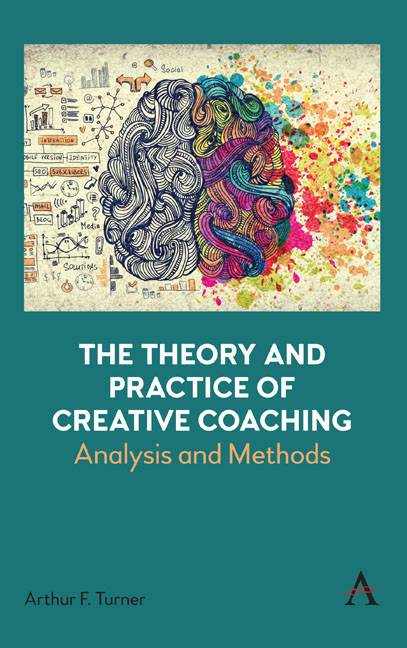Book contents
- Frontmatter
- Contents
- About the Author
- Preface
- Influences
- Introduction
- Section 1 Theory and Research
- Sections 2 and 3 Theory to Practice
- Section 2 Alternative Foci
- Section 3 Three Detailed Examples of Creativity in the Service of Executive Coaching (Walking, the Use of Finger Puppets and the Use of Music)
- Index
10 - Music and How Can It Be Used in Coaching Practice
Published online by Cambridge University Press: 28 February 2024
- Frontmatter
- Contents
- About the Author
- Preface
- Influences
- Introduction
- Section 1 Theory and Research
- Sections 2 and 3 Theory to Practice
- Section 2 Alternative Foci
- Section 3 Three Detailed Examples of Creativity in the Service of Executive Coaching (Walking, the Use of Finger Puppets and the Use of Music)
- Index
Summary
This chapter looks at techniques and ideas of creative coaching in more detail. The reader will have more ideas on how to become a successful musical coach.
Use of music with coaching clients or as part of the development of alternative coaching approaches, along with other topics in this book, such as walking coaching and mediating objects, is a little explored topic. In this chapter I explore a number of interrelated subjects that have been encountered such as music theory, jazz improvisation, duets and the use of musical interludes in both the training of coaching and the use of music within a coaching session. I will look at exercises that have worked in both coaching development programmes and recently with music-related approaches. I will also make links between theories of how the brain works and its connections with human emotions and the ways in which music can help to enhance engagement, build rapport, promote deeper thought and add to the growing field of creative coaching interventions.
This chapter provokes thinking, rethinking and reflection on the use of music in understanding the coaching process, linking to the co-emotional aspects of working with the challenges of personal development as well as giving some practical examples of types of music that could induce different client interactions
Previous chapters have focused on walking, use of silence and the use of historical and contemporary finger puppets (Turner, 2016: Turner, 2017: Turner, 2019a). These papers reflect my overall interest in creative techniques of learning within coaching relationships summed up in my 2019 article published by the Institute of Leadership and Management (Turner, 2019b). All these topics can be considered as sitting outside of the coaching mainstream with the articles examining, in detail, the complex creative theories and models emanating from neuroscience and psychology (Seto and Geithner, 2018). In addition, this chapter does reflect an interest in psychological and creative aspects of the coaching process (Cavanagh and Lane, 2012). In particular this chapter ponders on the early aspects of the coaching ‘life cycle’ (Clutterbuck and Lane, 2004) such as building rapport and linking to the emotions involved in the stimulation and curiosity of the client's mind and their own executive behaviours.
- Type
- Chapter
- Information
- The Theory and Practice of Creative CoachingAnalysis and Methods, pp. 119 - 128Publisher: Anthem PressPrint publication year: 2023

